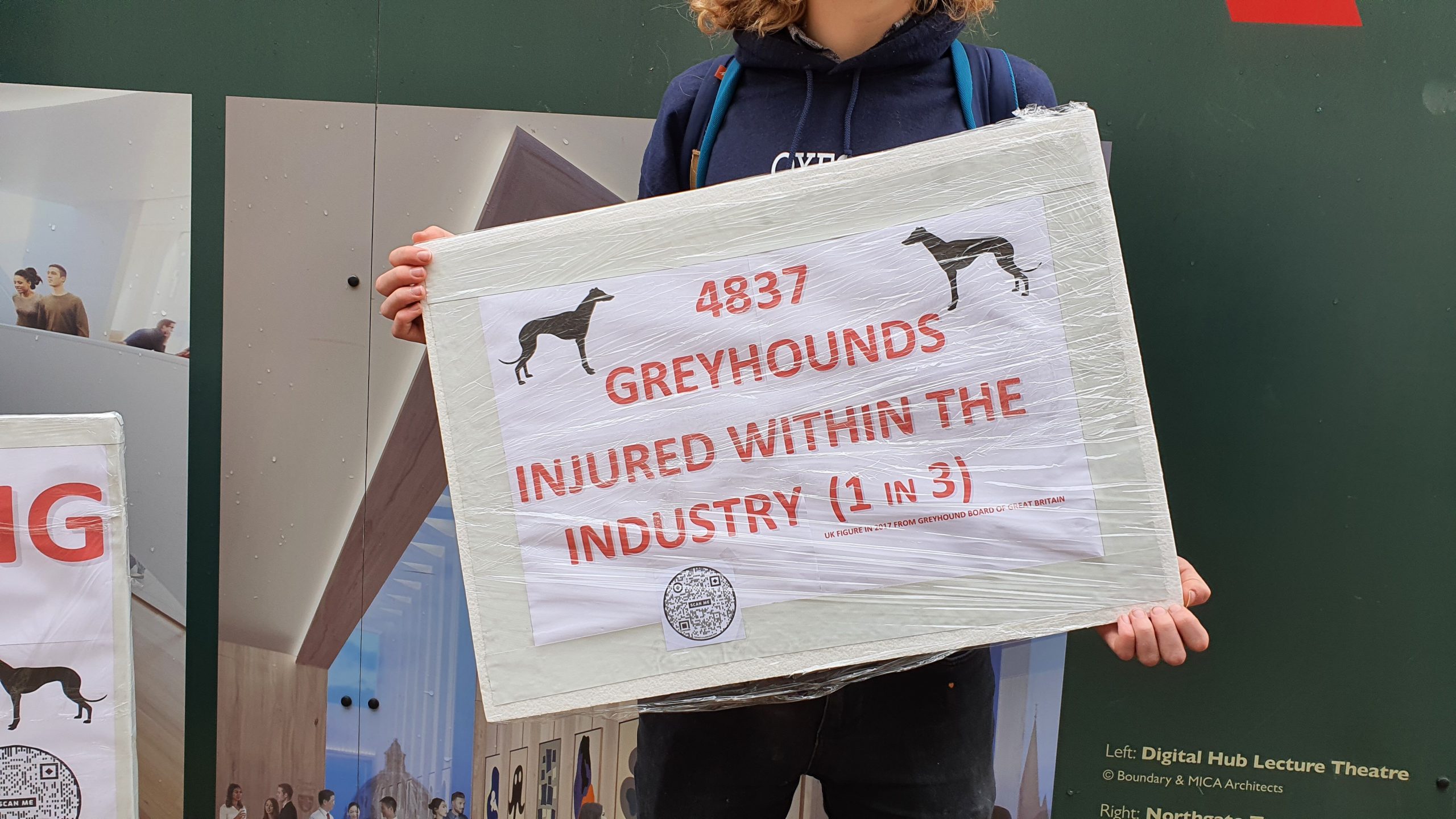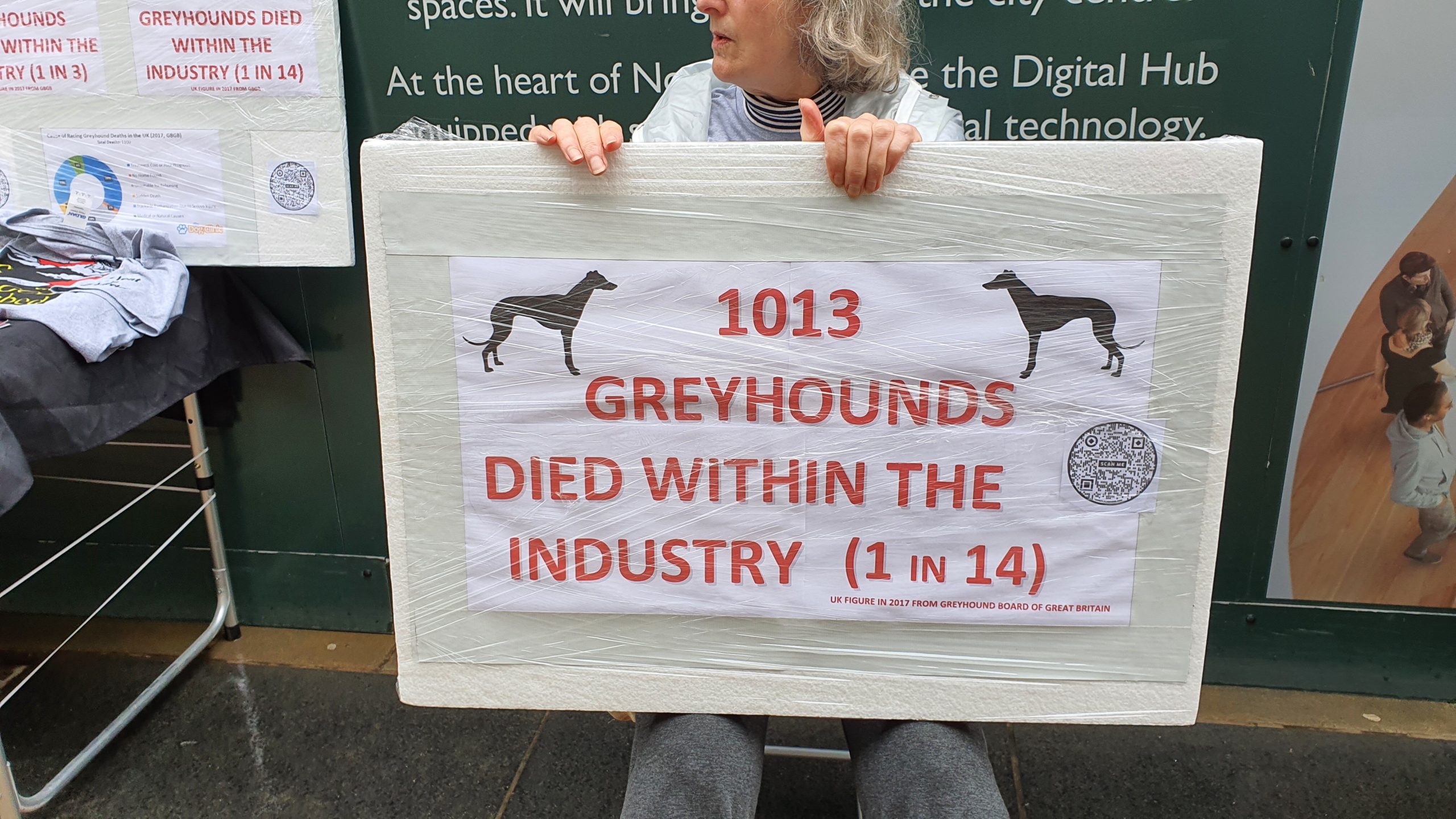Oxford Vegan Action and animal rights charity PETA have expressed their opposition to restarting Greyhound racing at Oxford Stadium. Oxford Vegan Action have held in-person protests, while PETA have started a petition urging the Council to use the stadium for “sports that involve willing human participants”.
Oxford Vegan Action conducted peaceful demonstrations in Oxford City Centre in July, and invited people to also voice their opposition by writing to the Stadium owner. The activists highlighted the number of injuries and deaths of Greyhounds due to racing, stating that 1 in 3 dogs in the industry are injured, and 1 in 14 die (source: UK figures in 2017 from Greyhound Board of Britain).


A 2015 joint analysis by The Sunday Times and animal welfare campaigners found that 40,000 greyhounds have been injured on British racing tracks in the past decade, and that more than 18,000 of these did not race again.
Statistics on the effects of racing on Greyhound welfare differ according to sources and measurements. The British Greyhound regulator only records those injuries noted directly after the race, while other animal welfare campaigns include long-run effects. Long-run health effects of Greyhound Racing include behavioral problems and trauma, making it hard to find homes for dogs, and unhealthy bone structure due to the curved tracks.
The animal rights charity PETA also criticizes the use of doping drugs on Greyhounds. Drugs used include morphine to reduce perception of pain from injury, steroids, and class A drugs like cocaine. The Greyhound Board of Great Britain has published hundreds of positive drug tests since 2009, says greyhound advocacy group GREY2K USA.
Oxford Stadium closed in late 2012 due to financial difficulties, with Greyhound racing seen as a declining industry. UK attendance decreased from 3.2 million spectators in 2006 to 2 million in 2014, and the number of licensed tracks decreased by 25% from 2006 to 2021.
Successful campaigning by Save Our Stadium and the City Council stopped the stadium from being demolished back in 2012. In June 2021, more than 8 years later, racing track manager Kevin Boothby acquired a ten-year lease for the Stadium. He plans to reopen it for Greyhound racing this December.
Kevin Boothby told Cherwell: “We have been overwhelmed and delighted by the positive response from local people, families and businesses about the return of greyhound racing to Oxford. As the country’s sixth most popular spectator sport, greyhound racing is enjoyed by people from all ages and all walks of life. We look forward to opening our doors and welcoming local people from across the local area and beyond.
“Greyhound welfare is at the very heart of our sport and there are strict rules and regulations in place to ensure greyhounds are well cared for throughout their racing careers. Racing injuries are at an all-time low and more retired dogs than ever are going onto loving forever homes.”
Regarding the maintenance of the stadium, Oxford City Council told Cherwell: “The Council was clear in the adopted Local Plan Policy SP51 that we wanted to ensure that the site was kept for community and leisure use. We will want to be confident that the operator will be committed to ensuring this is a long term proposal delivering a high quality and accessible venue as well as delivering jobs and training to the local community. We will look forward to working with Galliard Homes to achieve this.”
This article was updated on July 30th to include comments from Mr Boothby and Oxford City Council.
Image: Oxford Vegan Action


